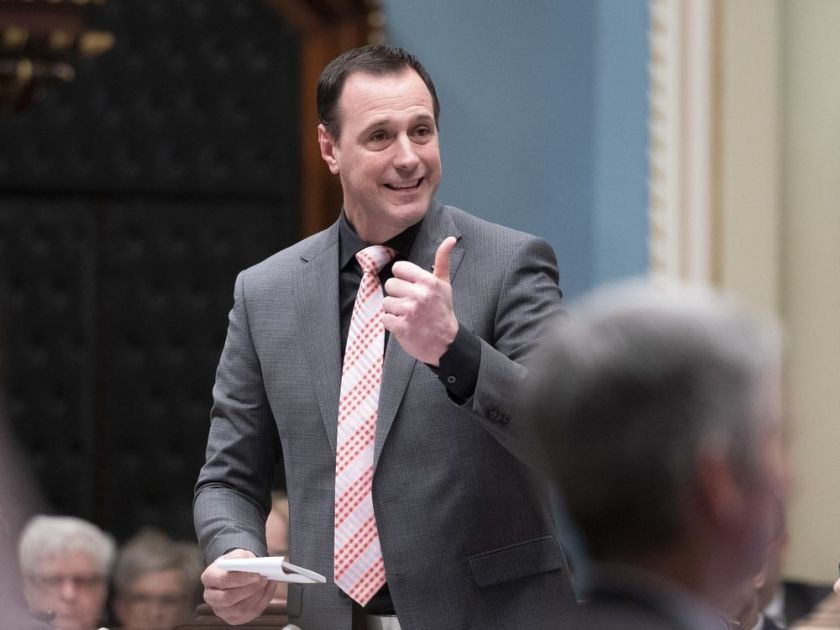When Education Minister Jean-François Roberge exercised a rarely used power to order the closing of an English-language high school at the end of this school year so it could be handed over to a French-language board, he called his action “exceptional.”
That was in late January. Less than four months later, the exceptional is becoming normal.
The sudden closing of Riverdale High School in the West Island became a cause célèbre in the English-speaking community. That hasn’t deterred Roberge, however, from threatening to again dispense with the normal one-year prior consultation provided for in the Education Act in order to transfer three more English schools to a French board, this time in east-end Montreal.
The French boards are faced with a sudden surge in enrolment due to the arrival of refugee children, while the English schools in question are half-empty. Both are effects of Quebec’s language law, Bill 101, which generally requires immigrant children to go to French schools.
In an interview on French-language television last Sunday, Roberge said the east-end Commission scolaire de la Pointe-de-l’Île is facing an enrolment surplus of 3,000 pupils in the fall, while in the same territory the English Montreal School Board has half-empty schools.
But the education minister said, the English-language board “didn’t want” to negotiate a transfer of classroom space to the French-language one, preferring to “pay to heat empty classrooms,” and placing “political considerations” ahead of the right to education.
This contradicts what the EMSB had said in a statement last week, that discussions with the French-language board had been “ongoing since January,” and that in February it offered to share one of its buildings.
Relations between the EMSB and the Legault government were already strained, since the board voted unanimously in March to not enforce the government’s proposed ban on hiring teachers who wear religious symbols.
Roberge’s action appears to violate Section 23 of the constitutional Canadian Charter of Rights and Freedoms.
As interpreted by the Supreme Court of Canada in its 1990 Mahé decision, that section gives minority-language parents “a right to management and control” of their children’s schools.
For the Coalition Avenir Québec government of which Roberge is a member, this apparent violation of minority rights is far from an isolated case.
There are historic cases of violations of the rights of linguistic or religious minorities by previous Quebec governments. But none attacked them as systematically as François Legault’s CAQ government has in only seven months in power.
The apparent right of the English-speaking minority to its own school boards under Section 23 is threatened by the CAQ’s intention to abolish all the province’s boards.
But the biggest threat to minority rights is the government’s proposed anti-hijab-and-kippah-and-turban legislation, Bill 21.
This week, the Quebec Association of English School Boards introduced a new argument against Bill 21. It said the legislation, in forbidding the boards from hiring teachers who wear religious symbols, would violate the Mahé decision, which recognized the “exclusive authority” of minority-language representatives over the “recruitment and assignment of teachers and other personnel.” And that right cannot be overridden by the constitutional Charter’s “notwithstanding” clause invoked in Bill 21.
But by invoking the clause to limit other freedoms, the CAQ government tacitly admitted that those limits cannot, in the words of the Charter, be “demonstrably justified” as “reasonable” in a “free and democratic society.”
Also in Bill 21, the government has created a recent precedent by proposing to override the Quebec as well as the constitutional charters of rights pre-emptively, as a preventive measure, even before the legislation is adopted and tested in the courts.
As a UQAM legal-sciences professor, Pierre Bosset, noted in Le Devoir this week, the government would create other precedents with Bill 21 by weakening the Quebec Charter, using closure to rush the legislation through the National Assembly, and passing it without all-party support.
And as the education minister is demonstrating, such precedents make future violations of minority rights easier.

























